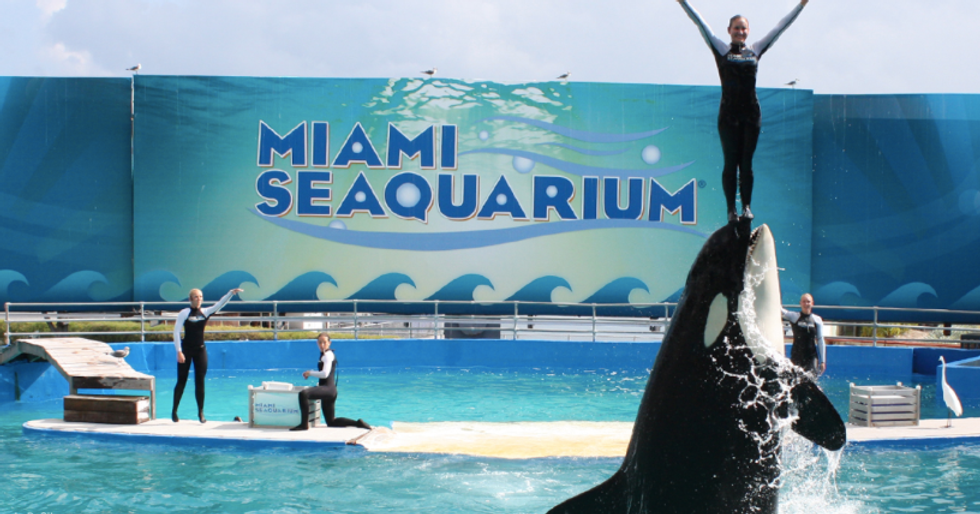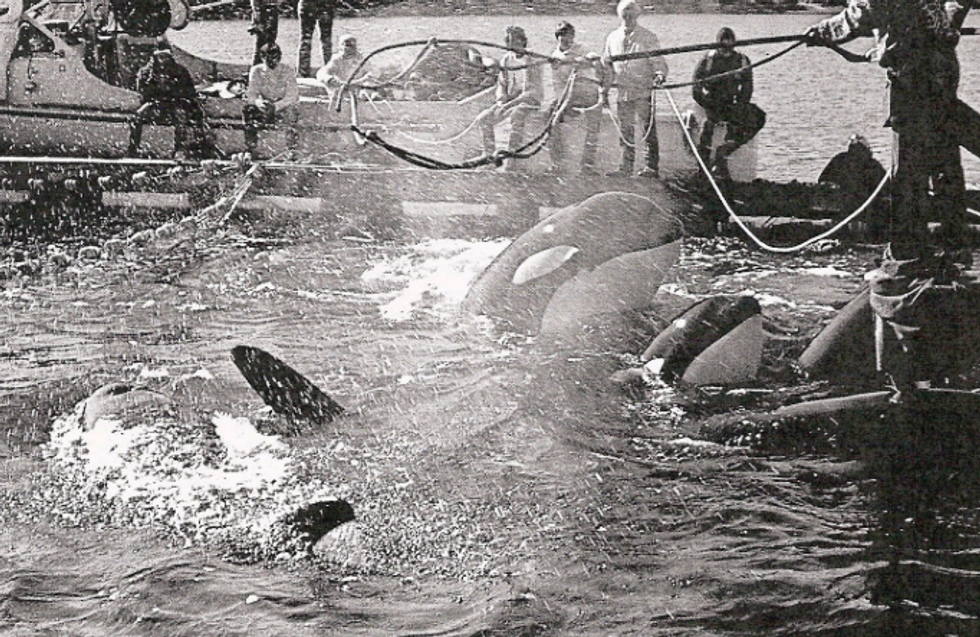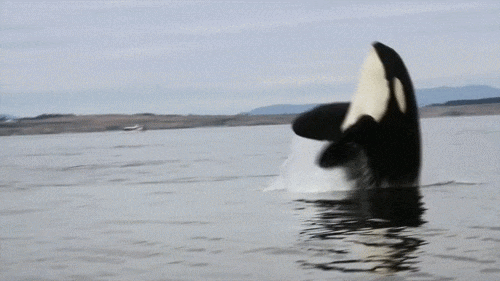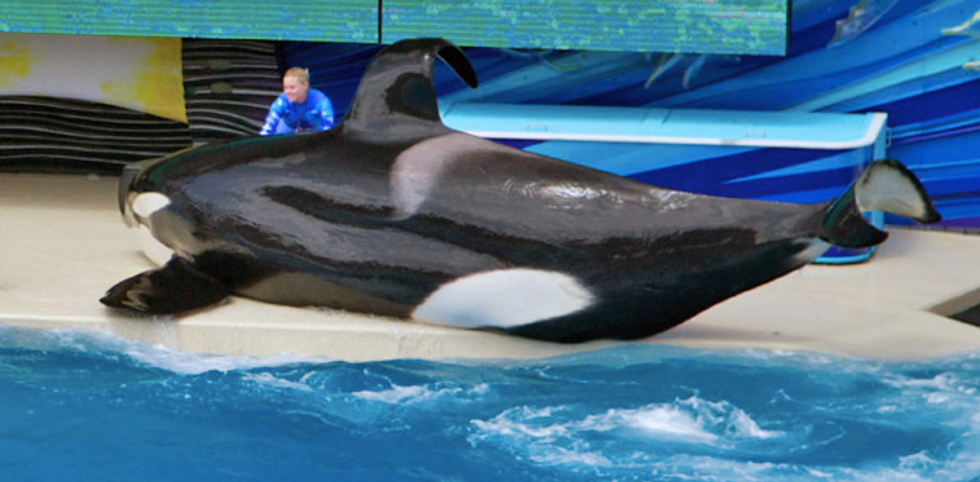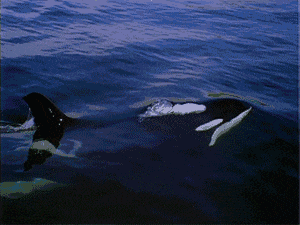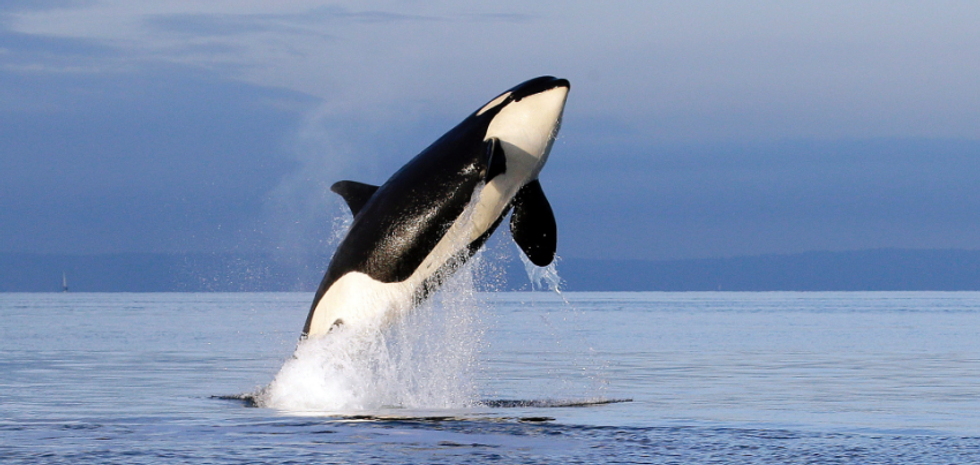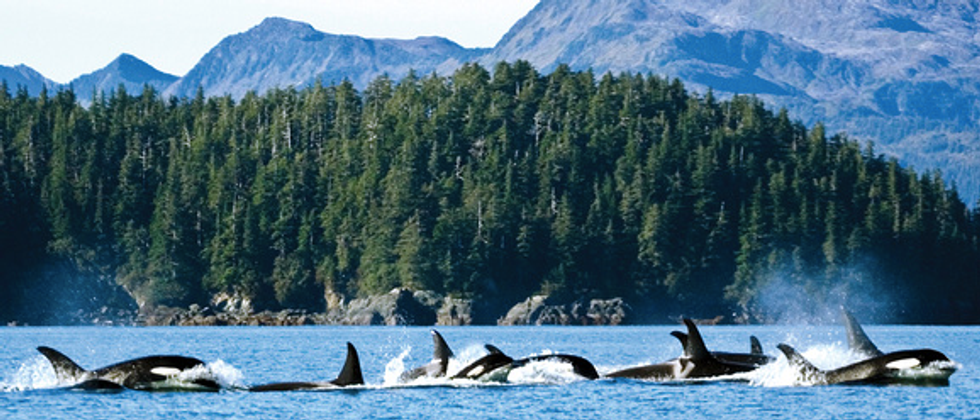If there is a whale in your swimming pool, you have a problem. But more importantly and tragically, that whale has a problem. The difference between you and that whale is you have the choice to remove it...that whale is stuck in your pool, which to them, is merely a bath tub.
We've all been to SeaWorld. We were not perfect, educated children when our parents took us to see Shamu, and be splashed with water by her tail. We laughed and were amazed by the trainers dressed in tight suits of black and white, stand on the back of Tilikum, as they circled around the tank and threw rewards of fish for executing their tricks correctly. It was entertaining. That's all. The whales seemed to be happy, they clicked and flipped for us and our flashing cameras. But what happened after we cleared the stands? After we bought our Shamu stuffed toys, and took pictures with the man dressed like an orca whale? What happens to these wild creatures after the show is over? As we are sitting in awe over these magnificent, clearly intelligent corporeal beings, it doesn't cross our minds how they got there, where they came from, or what they are missing out on by being held in a tank rather than swimming along side their family in the ocean.
Orca whales are something that hit close to home for me. Literally. In 1960s-1970s, over 65 orcas were herded by the use of frightening explosives, airplanes flying and watching the movements of the whales above, and men on speedboats in Penn Cove right in my home, the San Juan Islands in Washington State. Whales could be heard screeching in fear for their loved ones, young ones were stripped from their mothers and taken to never return to the ocean. They were dispersed to various theme parks to be made a spectacle of and used for the entertainment of corporate greed. Lolita, one of the whales captured in Penn Cove, WA is the only surviving orca in captivity from those 1960s-1970s kidnappings. She has spent forty years held captive in Miami's Seaquarium. Her mother and pod still swim in the waters of the Puget Sound. I see them very often, but someone will always be missing. So if the question "where did they come from" pops into your mind after the show is over, remember Lolita, and her family and the other dozens of orcas stripped from their homes and families.
Orcas in the wild live long and healthy lives. In the wild a male orca can be expected to live between sixty and seventy years old, whereas a female can live to be over one hundred years old. "Granny" as named by the Center for Whale Research a member of the Southern Resident communities' J-Pod in the Puget Sound is estimated to be 104 years old this year. And at 104 years old I have seen this matriarch with my own eyes breaching in front of Mt. Baker on a beautiful sunny day. Not because she was told to by a trainer with a small fish in their hands, but because she wanted to. Who knows why? Maybe she was experiencing the rare feeling of gravity above the water. Maybe she had an itch to scratch. Whatever the reason, it was her free will. These whales have that; free will, and when held in captivity those free wills are punished and diminished by the hands of "the most intelligent creature on earth."
In captivity, the average orca does not live longer than 15 years old. So the mortality rate of both adult orcas and calves are much more elevated in the tank than they are in the ocean. The risk of premature death is a guaranteed factor the second this wild animal is taken from the ocean and placed in a cell. Forty four whales have died at the hands of SeaWorld. And there have been dozens of stillbirths and miscarriages among the female population.
Some of you may of noticed the collapsed dorsal fins portrayed on orcas kept in captivity. This is from the amount of time these ocean mammals spend at the surface in their shallow tanks. Gravity that they rarely experience in the wild, is a part of the major part of their dorsal fin's health. The buoyancy of being submerged under the sea keeps a wild orcas dorsal fin tall and straight, as it should be. But in captivity gravity takes its toll and a dorsal fin becomes flopped over and quite depressing.
A bored whale is a stressed whale. A stressed whale is a destructive whale. Most importantly a bored and stressed whale is destructive to itself. These animals are highly social creatures. They travel in the same pod in the wild their entire lives. They are playful and highly communicative. These whales have their own languages within their pods. Studies have show communication differences between the various pods, showing a remarkable pattern of "speaking" between members of the family group.
When in captivity, animals are placed in tanks sometimes alone, and sometimes with another foreign orca. These orcas cannot communicate with each other. Causing apparent frustration and lack of bond between the two animals. Fights occur because of dominance issues and territory problems. In the wild dominance is simple, these whales live in a matriarchal society so the eldest female rules the roost. Territory is not an issue because the ocean is their territory. In the wild, these animals don't have a predator, they are the wolves of the sea, top of the food chain. So you can see how in captivity being kept in a tank holding more than one whale that can be measured in a matters of feet may pose an issue.
Orcas are ranked as the third most intelligent creatures on our planet. After us, and chimpanzees, orcas exhibit the most intelligent forms of behavior, team working and comprehension. The orca has a part of their brain that we humans lack. That part of their brain is located in their Limbic system, the system in a mammals brain that handles emotions. This extra part in their Limbic system is beyond our comprehension. Do they feel emotions on a more extreme and remarkable level? Or perhaps they have emotions that are beyond our abilities as humans to feel. Regardless to the answer, these animals have them. They have emotions. And the last emotion they are feeling is one of happiness and joy when confined in a glass receptacle for the entertainment of the creatures that call themselves the most intelligent beings on earth. We can say this simply because we can say it. Where is the orcas voice? It is hushed. It is hushed by the heads that turn away from them and their realities. It is hushed by the trainer on their back, and the screaming crowds. They are silenced.
Okay, so why? Why have I written a lengthy article on my clear opinion on the captivity of orca whales? Because there are still uneducated people. There are people who are clueless to the reality at hand. There are still people at this very second pouring through the gates of SeaWorld, buying tickets, watching the flipping whale, and they are clueless or simply in denial. The orcas silenced voices are not being heard by everyone. There will always be supporters of businesses like SeaWorld, using excuses like "education" and "protection" and the "study" of whales. And to make that individual decision to support is their right. But I believe it is important to know the facts and reality before turning your head from the truth. A whale can be learned from by observing in the wild, where they are living the way they should be.
When your child pictures an orca whale, his or her image should be of that whale swimming in the ocean alongside its pod, not in a shallow tank surrounded by gates and fences. A whale can be protected in the wild by keeping them there and a whale can be studied in ways that are non-invasive to them in their natural habitat, it is done every day. These excuses used by these animals captors are blinding their audience with media and the thrill. So all I ask is to do your research. Learn about the ways to help Lolita and others like her. Educate yourself about the matters at hand, and familiarize yourself with organizations who are working tirelessly to return these animals and rehabilitate them so they can return to their families, and return to the ocean. Because there is nothing thrilling about any of it. It's terrifying, for both the supporters of freeing these whales and the whales themselves. It is truly terrifying.
Every day a person walks into a theme park to see an orca whale, another person is stepping onto a boat in the San Juan islands and other parts of the world to go search for the magnificent wolf of the sea, to search and hope to find, for they do not come to their names, they do not come when we blow a whistle, they come when they want to. We are observers in their home. We are not their owners, we are merely visitors. As we should remain.




